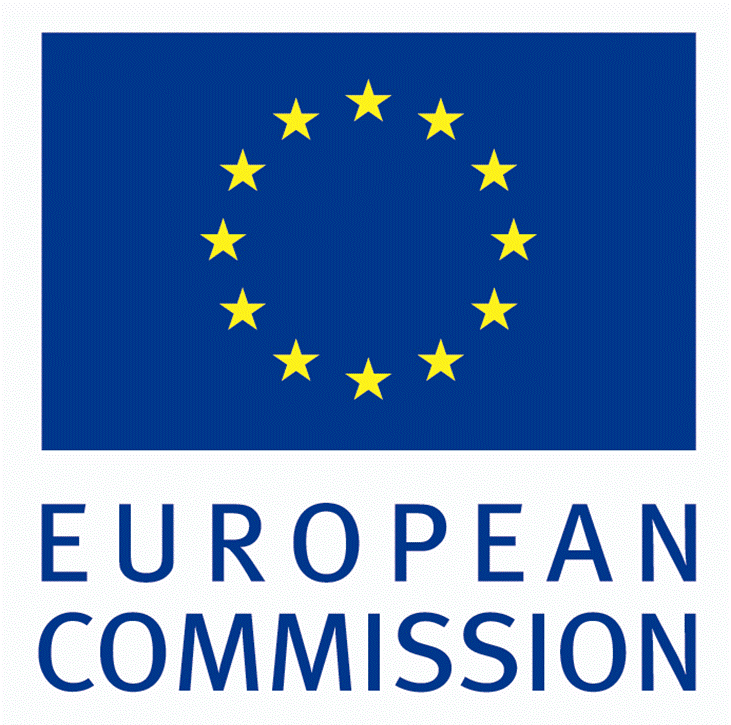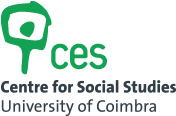CES Summer School
Research on research (GLOCADEMICS): ‘Glocal languages’, interculturalidad(e) and ‘Intercultural Responsibility’ in transnational South/North research projects
September 17 to 21, 2017 (CANCELLED)
Presentation
Research on research (GLOCADEMICS)
‘Glocal languages’, interculturalidad(e) and ‘Intercultural Responsibility’ in transnational South/North research projects
[THIS SUMMER SCHOOL IS CANCELLED]
Course description
Both this Summer School Research on research (GLOCADEMICS): ‘Glocal languages’, interculturalidad(e) and ‘Intercultural Responsibility’ in transnational South/North research projects and the Symposium Researchers’ Science Diplomacy: North-South reciprocal intercultural responsibility topics emerge from the GLOCADEMICS project funded by the European Commission, Marie Sklodowska Curie Actions (http://www.ces.uc.pt/projectos/glocademics/ ), whose title is: ‘Glocal Languages’ and ‘Intercultural Responsibility’ in a postcolonial global academic world (GLOCADEMICS): Power relations between languages/cultures within and between research groups.
Participants can attend both the Summer School and the Symposium or only one of them. Talks and debates will be led by Faculty who are well-known worldwide for their knowledge, in their specific fields, and their experience in carrying out international research projects. Furthermore, they will bring in an interdisciplinary perspective to the topic and share their critical analyses about their international research experience. Summer School and Symposium contents will revolve around the following themes:
‘Knowledge ecologies’ / ‘New epistemologies’(North/South)
We will be building upon the idea that there have been different knowledge producing frameworks in the world, profiting from and resisting to unequal relations of power, that correspond to different world and life visions (Mamani, 2010). Science and the academy have been reproducing a successful model, originated in European history and formalized during the Enlightenment, which has since then remained unquestioned and been exported through colonialism. A scientific model has been imposed through all kinds of evaluation procedures and strengthened by the globalized idea of an “entrepreneurial university” (Barnett, 2011), and the English language has been used as a powerful but simplified vehicle for this purpose (Guilherme, 2007). However, since the late sixties, academics have considered the incorporation of new epistemological possibilities in a movement that is expanding and globalizing (Santos, 2007a/b). In the meantime, academics involved in international research projects have attempted to translate and negotiate the complexity of meanings both for work concepts and for interaction principles. We therefore aim to give voice to such practices and remaining difficulties at the grassroots level. The “south/north” metaphor shall be adopted here in order to represent different world visions, a variety of knowledge producing frameworks, as well as different perspectives about concepts such as multiculturalism, interculturality and the transcultural (Estermann, 2010; Mignolo, 2000, 2011), (Santos, 2009, 2010a/b).
Globalization, postcolonialism and inter-ethnic studies
With the unfolding of colonialism and globalization, which have constituted different phases of a continuing process led by capitalism at an early and later stage, the North and the South have, to some extent, been de-territorialized, and therefore permeated every society in both hemispheres, although symbolic representations remain geographically situated (Canclini, 2005). Therefore, terms such as “multicultural”, “intercultural” and “transcultural” are now all becoming quite common around the world, both in the academy and in official policy documents. However, each one of them is more or less familiar to each society, either with positive or negative connotations, depending on the academic traditions and the historical developments of each one of the terms in each context. This means that such terms are not universal signifiers either, although they are often paradoxically understood as such despite their own particular reference to difference (Guilherme & Dietz, 2015).
Science Diplomacy
Known in the USA for a long time, science diplomacy is an emerging term in the EU context, and a recent one at broader international level.
The Royal Society identifies 3 dimensions of science diplomacy.
· science in diplomacy − informing foreign policy objectives with scientific advice.
· diplomacy for science − facilitating international science cooperation.
· science for diplomacy − using science cooperation to improve international relations between countries.
We are going to focus on the 3rd dimension, which regards the researchers’ work in particular. Both the Royal Academy and the European Commission, the latter expressed in the words of Carlos Moedas, its Commissioner for Research, Science and Innovation, emphasise the expansion of a universal rationality as well as the universal language and expression of the scientific endeavour in order to build common understanding and establish unity. We aim to discuss and challenge this idea of science diplomacy and to further hypotheses for the role of researchers (GLOCADEMICS) in developing science diplomacy, and to examine its complexities face to face with the promotion of an ecology of knowledges through intercultural epistemological translation, plurilingualism and interculturalidade.
GLOCADEMICS
With their internationalization, the national hegemony lost, universities worldwide have been translating an Anglo-Saxon pragmatism into an oversimplified model of knowledge production and creating a functional model that responds directly to the market, as it appears to be today, that is, with no contextual vision for the future. This is also the reason why the crisis of the university identity is understood to have coincided with the crisis of the paradigm of modernity. However, it seems that the large “metadiscourse” of modernity has been replaced by another “grand narrative” (Lyotard, 1986), that of hegemonic globalization in the form of the “mercantile globalization of the university” (Santos, 2005: 6). This results from and in some “thinness in our contemporary thinking about the university” and, therefore, again according to Barnett, we must acknowledge that “the imaginary landscape of the idea of higher education is rather empty at the present time” (2013: 13-14). However, what has been presented as the epitome of modernity, with regard to higher education and its contribution to society, is lagging behind the challenges of the 21st century. In the first place, taken-for-granted truths telling us that “the sociocultural paradigm of modernity ‘science’ became the celebrated knowledge, ‘the knowledge’” and that “scientific community is the supreme judge of scientific axioms”, as we are critically reminded by Magalhães, have become too tight for a world where knowledge, information and education have become massive and accessible through democracy and technology (Magalhães, 2001: 182-183). Moreover, the author also acknowledges that “scientific truth is a cosmopolitan construction”, a tenet which is too often forgotten and contradicted by those, too many, who perceive scientific truth as ethnocentrically based and constrained as such. Souza warns about the difficulties of mutual intelligibility across cultures and states that “one should be aware of the equality in difference between one’s own knowledge and that of the other at the same time as one is fully aware that one is not the other and is therefore different” (Souza: 55). “Epistemic interculturality” (Walsh 2007) is not an undertaking of one side but a reciprocal and overriding attempt of conversing and learning together ways of meeting and living with the unknown. According to Santos, “learning from the South is therefore the process of intercultural translation by means of which the anti-imperial South is constructed both in the global North and in the global South” (2014: 224). Therefore, epistemological interculturality, that is critical, involves unlearning the processes of epistemological supremacy and unilateral visibility both by and within the South and the North, since they have come to be trans-territorial and internalized. Universities, in the process of internationalization, and respectively academics, are in a privileged position to undertake this challenge.
Glocal languages
The conceptual framework embodied in the term ‘glocal’ language also responds to Santos’ theorization of the production forms of globalization, namely: (a) “globalized localism” – “the process by which a given local phenomenon is successfully globalized, be it the transformation of the English language into the lingua franca”; (b) “localized globalism” – “the specific impact of transnational practices and imperatives on local conditions that are thereby destructed and restructured in order to respond to transnational imperatives”; (c) “cosmopolitanism” – “the opportunity for subordinate nation-states, regions, classes or social groups and their allies to organize transnationally in defence of perceived common interests and use to their benefit the capabilities for transnational interaction created by the world system”; (d) “common heritage of humankind” – “the emergence of issues which, by their nature, are as global as the globe itself” (Santos, 1999: 217-218). Not only do Humanities departments need to be aware of the implications of the above described state-of-the-art in their curricula and organization, but also do researchers in general need to be aware of the subtleties implicit, and explicit, if they are made visible, in their multilingual and intercultural communication and interaction while networking internationally. Finally, the term ‘glocal languages’ intends to challenge the term ‘lingua franca’, which masks the illusive supremacy of one language only and neglects multilingualism, and strengthen the idea of the legitimate variability of each language and the wealth of knowledges each one can bring in to the multilingual conversation.
Intercultural responsibility
Researchers and practitioners from all over the world have published the results of their work, theorizations and best practices related to identity building and hybridization, intercultural conflict, either in society or at work, discussed the concept of the “intercultural speaker” introduced by the Council of Europe (Byram and Zarate, 1997) through its “Common European Framework of Reference for Languages (CEFR)” (1996), and introduced different models for developing interculturally competent citizens (e.g. Deardorff, 2009). Transnational organizations, such as the Council of Europe and UNESCO, have themselves supported studies on related areas (UNESCO, 2013). Other collective work has focused on power pressures on communication, on the relationship between communication and transnationality, languages and cultures in contact, intercultural pragmatics and rethoric, stereotyping, on intercultural training within business education and other fields of professional development programmes (Jackson, 2012).
Having the above studies in mind, we may conclude that intercultural experience does not equate with intercultural competence and, furthermore, that there is no single model of intercultural competence that fits every intercultural experience. There is, however, a need for the development of certain principles and strategies that may provide the person and the group, both from an individual and from a collective point of view, with the knowledge and predispositions towards multiculturalism, interculturality and intercultural dialogue which will allow the intercultural experience to turn into an opportunity for personal, societal and professional reflection and enrichment.
This reasoning also suggests a move beyond the concept of ‘intercultural competence’ towards a notion of ‘intercultural responsibility’, which adds a social, relational, civic and ethical component to the conception of intercultural competence (Guilherme et al. 2010). Intercultural responsibility is understood here as a conscious and reciprocally respectful, both professional and personal, relationship among the team/group members, assuming that they have different ethnic backgrounds, whether national or sub-national. This means that members-in-interaction demonstrate that they are aware of the particularities of collaborating with their co-workers, either in an inter- or intra-national context, recognising that their identities have been socially and culturally constructed based on different ethnic elements and influences which have brought to bear, at different stages, more or less weight. Furthermore, intercultural responsibility implies that every member is responsible not only for identifying and recognising the cultural idiosyncrasies of every other member-in-interaction, but also for developing full and reciprocally demanding professional relationships with them. The notion of intercultural responsibility adds a moral, although cosmopolitan, element to global ethics.
The basic questions are:
- Being global European languages those of colonization and hegemonic globalisation, how can they, at the same time, be appropriated and used as emancipatory tools? Can they provide common ground where different appropriations of the represented cultures can dialogue? And one into which the various home cultures and epistemologies can be translated? While, at the same time, make room for native languages to grow? How do they work in the formation of identities and in the fulfilment of citizenship rights and duties, in different spheres, local and global?
- Do the tenets normally included in the definitions of ‘Intercultural Competence(s)’ fully and adequately respond to researchers’ professional and personal demands? Do IC ‘best practices’ displayed in published material effectively support research group members in their communication/interaction? Can the notion of ‘Intercultural Responsibility’ raise them up to their challenges in international networking? Can it provide ground for conceptual negotiation and collaboration? Can it promote a scientific approach that takes into account an ‘ecology of knowledges’?
- Which are the main possibilities and challenges in epistemological exchange within and among multilingual and multicultural research groups? Which are the main historical pressures to be overcome? What initiatives can higher institutions take in order to make research international networking more effective? In what directions should research in the field go?
Objectives:
1. To discuss different conceptual frameworks, epistemological traditions and socio-political perspectives of the notion of terms such as ‘intercultural’ ‘multicultural’, which stand for as abstractions deeply rooted in cultural traditions and ontological standpoints;
2. to focus on (south-south, south-north, north-south) epistemological exchanges as well as on the corresponding institutional and micro-context relations;
3. to critically analyse the postcolonial tensions between different multinational and multicultural research team members;
4. to critically examine the power relations between national/transnational languages and native/indigenous languages in research in a globalising world;
5. to examine the plurilingual and intercultural dynamics of multicultural group work in scientific ‘communities of practice’, with a focus on the use of English, Spanish and Portuguese, both in the social sciences and life sciences
6. to find out how researchers negotiate the use of one common language and about the role of other languages;
7. to find out how researchers set their values and principles, as related to their professional and personal relationships, that guide their communication and interaction in the fulfilment of their tasks.
Course coordinator:
Manuela Guilherme (GLOCADEMICS Principal Investigator)
Keynote Speakers:
Manuela Guilherme, CES/GLOCADEMICS, Portugal
Lynn Mario de Souza, University of São Paulo, Brazil
Charbel El-Hani, Federal University of Bahia, Brazil
Gunther Dietz, Universidad Veracruzana in Xalapa, Mexico
Guest Speakers:
Luis Cunha, Marie-Curie Fellow
António Sousa Ribeiro, CES, Portugal
João Arriscado Nunes, CES, Portugal
António M. Magalhães, University of Porto
Pedro Videira, CIPES, Portugal
Representative of FCT/ Marie Sklodowska-Curie
Target participants:
Main target: - Researchers » postgraduate, junior and senior, mainly focusing their work in the Social Sciences, Humanities and Life Sciences; Social movement activists, diplomats and policy-makers, mainly those dealing with international, nongovernmental and governmental, organisations;
General target – anyone interested in research, intercultural communication and interaction, plurilingualism, interdisciplinarity, internationalization and globalization;
Maximum number of participants: 40 participants
Summer school will be carried out only with a minimum of 30 participants (until May 30).
Language(s) – The predominant language will be English, but multilingualism will be adapted and promoted (depending on the language proficiencies of the participants).
Applications:
Applications run from January 15 to April 17, 2017. Applicants will be notified of acceptance or non-acceptance until April 30.
Candidates must fill in the form available [HERE] and attach a short CV.
Registration begins on April 30, 2017.
Tuition:
Summer School & Symposium:
Full tuition:
Students: 800€ (sharing double room)
Registration: 300€ (non-refundable) until May 30;
Rest of payment: 500€ (non-refundable) until June 30; 600€ (non-refundable) until July 30;
Other: 900€ (sharing double room)
Registration: 300€ (non-refundable) until May 30;
Rest of payment: 600€ (non-refundable) until June 30; 700€ (non-refundable) until July 30;
Summer School only:
Full tuition:
Students: 650€ (sharing double room)
Registration: 300€ (non-refundable) until May 30;
Rest of payment: 350€ (non-refundable) until June 30; 450€ (non-refundable) until July 30;
Other: 750€ (sharing double room)
Registration: 300€ (non-refundable) until May 30;
Rest of payment: 450€ (non-refundable) until June 30; 550€ (non-refundable) until July 30;
Symposium only:
Full board: 160€
2 nights (sharing double room) and meals
Registration: free
TUITION INCLUDES PARTICIPATION IN SEMINARS; ACCOMMODATION IN DOUBLE ROOMS AT THE HOTEL DAS TERMAS IN CURIA; BREAKFASTS, LUNCHES, DINNERS AND COFFEE BREAKS; READING MATERIALS; AND TRANSFER TO AND FROM COIMBRA - CURIA.
TUITION DOES NOT INCLUDE DOMESTIC OR INTERNATIONAL TRAVELLING TO COIMBRA
Certificate: To be provided for the Summer School and the Symposium, with full participation.
 |
 |
 |
 |


